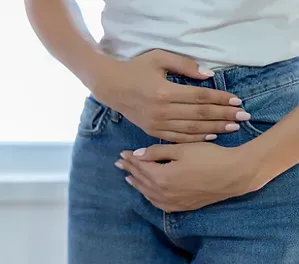BLADDER
BLADDER
Bladder problems can be annoying and embarrassing and have a huge impact on your life.
You may be avoiding socializing and doing physical activities, you may find yourself frantically searching for the nearest toilets wherever you are or you may be waking up feeling exhausted because your bladder has interrupted your sleep.
Urinary leakage is very common and no matter how little or infrequent, it’s not normal.

There are different types of urinary incontinence
Stress urinary incontinence, which involves bladder
leakage with coughing, sneezing, laughing, sudden movements or with exercise.
Urge urinary incontinence, which involves suddenly needing to empty your bladder urgently, to avoid leaking urine. For example you may find yourself always needing to know where all of the toilets are wherever you go in case of a toileting emergency.
Mixed urinary incontinence - Often these "types" of incontinence can overlap, with some women experiencing more than one of these bladder control issues.
Over active bladder is when the bladder muscle contracts without you having active control. The urge can happen suddenly and at any time, regardless of the amount of urine in the bladder.
Common symptoms
Leaking urine when you cough, sneeze or exercise
Rushing to the toilet with a sudden urge to go
Leaking urine on the way to the toilet
Going to the toilet frequently
Having your sleep interrupted by the need to empty your bladder
Feeling like you haven’t completely emptied your bladder
Having to strain to empty your bladder
Changes in flow of urine
Leaking on standing up after emptying your bladder
Pain on emptying your bladder
Possible causes of bladder problems
Pregnancy and childbirth
(either vaginal delivery or emergency C-section)
Weak pelvic floor muscle
strength / function
Constipation
Pelvic pain
Poor fluid intake
Obesity
Previous surgery
Strenuous sports
Ageing & Menopause
How can we help?
You don’t have to live with bladder problems or suffer in silence. In most cases, bladder problems can be significantly improved or even cured.
Urinary incontinence is often due to pelvic floor muscle dysfunction. We know that women who find it hard to control their bladder often have weakened pelvic floor muscles and need to strengthen them.
For some women, it can be the opposite problem. They need learn to relax the pelvic floor muscles, rather than strengthen, as the muscles are over active and in spasm, contributing to their poor bladder control. Our assessment will tell us which issue you may be struggling with.
Pelvic floor muscle retraining can help you gain control once again over your bladder. Woman of all ages need to have strong and properly functioning pelvic floor muscles and can benefit from pelvic floor muscle retraining.
Current evidence and the NICE guidelines show that you can successfully treat these bladder problems through personalized pelvic health physiotherapy designed and managed by a specifically trained Women’s health Physiotherapist.
Please be reassured that you don’t have to live with it or suffer in silence. Help is available at Salveo Physiotherapy.
What to expect
A thorough assessment to establish your main issues, pelvic floor muscle requirements, and treatment plan. It usually includes an internal vaginal examination (with your consent) and bladder chart analysis.
Design of a personalized pelvic floor muscle exercise
program.
Progression of your exercise program and application of your exercises to daily activities.
Instruction /advice on improving fluid intake, bladder habits, and bladder retraining strategies.

GET IN TOUCH
SOCIAL LINKS
© 2026 Salve. o Physiotherapy | Created by Taft Systems | Privacy Policy & GDPR | Cancellation & Non-Attendance Policy
